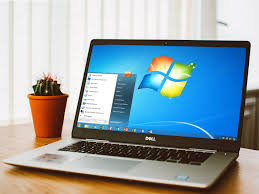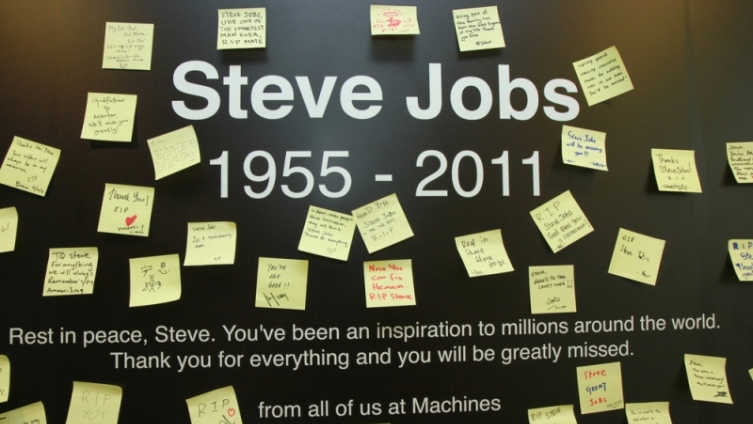Goodbye personal computer?
 In a large store of audio-video equipment, where he wandered for batteries, I watched the following picture. Three migrant workers from sunny Tajikistan (or Uzbekistan) were animatedly discussing a 17-inch laptop model worth about 60,000 rubles. They opened Vista menus, poked a finger at the price tag, got acquainted with the technical data. Clearly wanted to buy a typewriter. Being an individualist, I easily assume that someone is buying one. After all, a computer must be personal. For myself, for my wife, for a child, for elderly parents. You can also buy a dog. Everything is in full accordance with the best model of society – the consumer capitalist. Only it is unlikely that a guest worker will earn nearly 2,000 US tenge per laptop. It’s not only for him to live, he still needs to send a part of the money home to his wife and children. Well, is it possible to take for three … It turns out twenty thousand people. If for six – only 10 pieces. A netbook is more expensive, but here is a full-fledged laptop, a good brand, powerful hardware.
In a large store of audio-video equipment, where he wandered for batteries, I watched the following picture. Three migrant workers from sunny Tajikistan (or Uzbekistan) were animatedly discussing a 17-inch laptop model worth about 60,000 rubles. They opened Vista menus, poked a finger at the price tag, got acquainted with the technical data. Clearly wanted to buy a typewriter. Being an individualist, I easily assume that someone is buying one. After all, a computer must be personal. For myself, for my wife, for a child, for elderly parents. You can also buy a dog. Everything is in full accordance with the best model of society – the consumer capitalist. Only it is unlikely that a guest worker will earn nearly 2,000 US tenge per laptop. It’s not only for him to live, he still needs to send a part of the money home to his wife and children. Well, is it possible to take for three … It turns out twenty thousand people. If for six – only 10 pieces. A netbook is more expensive, but here is a full-fledged laptop, a good brand, powerful hardware.
Yes, not in sole possession. Cooperative. What is bad about him? People live in cooperative homes. They work in a brigade, which means that everyone will not immediately sit down. And it’s easy to draw up a usage schedule. Multiple accounts with individual settings. Or even one with a single inbox and Skype number. What should they hide from each other? Why did the three of us come, it’s also clear: the whole construction team will not trample in the store. We scored a group of participants, selected those responsible, and took off. In the native village, again, relatives of hard workers are sitting with the same computer (most likely, parents, wives have been here for a long time). And together they receive letters, photos, calls. Such a multi-user invention is not from a good life. Of course, a personal computer is better (that’s how we are used to). Let not the most powerful, stylish and comfortable, but still your own. On the other hand, the computer itself is a piece of hardware. Individual information. Individual entries, personal diary, correspondence, photographs. Individual blog, social network account. The user only needs access to the service he needs. Who owns the video card that displays the image on the display, or who owns the keyboard with which the information is entered, the user does not care. The topic of privacy and confidentiality is now pointless to discuss in principle. Encrypt files, do not specify contact information in Odnoklassniki, configure Tor and a proxy server – whoever needs it will get your information anyway. They can even ascribe if something is missing in your biography. I do not idealize the life of migrant workers, and the life of CIS citizens in general, but the idea of a “people’s group computer” resembles futuristic SaaS, merging into even more futuristic cloud computing. It’s enough to replace my Tajiks with corporations and firms, and instead of a laptop, imagine a powerful mainframe with services from Google, Apple (iCloud just announced) or Microsoft. Only while smart uncles decided which is more profitable – an “on-demand application” or “cloud computing”, and chose suitable business models, ordinary people solved pressing problems with existing solutions (sorry for the tautology). A rare case when the initiative from below moves towards the initiatives from above. Synchronization of bookmarks and contacts, sharing of Google Docs and the ability to access the service from anywhere in the world from different computers – all this exists and is actively used. He noted the habit of working exclusively in online editors. And if earlier I carefully tried text documents, now I switched to tables with presentations. My imagination painted an alternative world where the PC simply did not appear (or already disappeared). What in return? Mass distribution of Internet cafes, creative workshops for lovers. Or terminals like Soviet-era telephone boxes, with only a built-in display and keyboard, and routers with Wi-Fi, 3G and WiMax. Bus stops and buses with Wi-Fi or WiMax themselves already exist. It remains only to embed unpretentious netbooks into the seats (the questions of vandalism are beyond the scope of the article).
A working computer is understandable, a training computer is certain. But the home and personal computer suddenly began to seem like a kind of aberration, which should be fixed. Most likely, the upcoming “cloud” technology will fix it. Moreover, “heavy” applications (photo and video editors, etc.) can also be implemented. I shot my vacation in Thailand with an HD video camera, sent it to the “cloud” data center and set the effects that need to be “attached” to the video. And when he returned home – he downloaded the finished film from the server. This is just an abstract example, but in every abstraction there is a fraction of reality. And the parallel world of non-personal computers invented by me is gradually merging with our world of “personal computers”. P.S. I cannot say that the laptop was purchased – I did not see the fact of the purchase. Maybe they didn’t buy it. However, having visited the store a week later, this model was not found.




